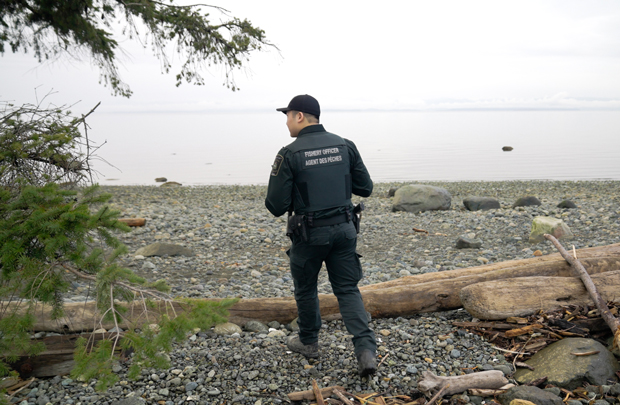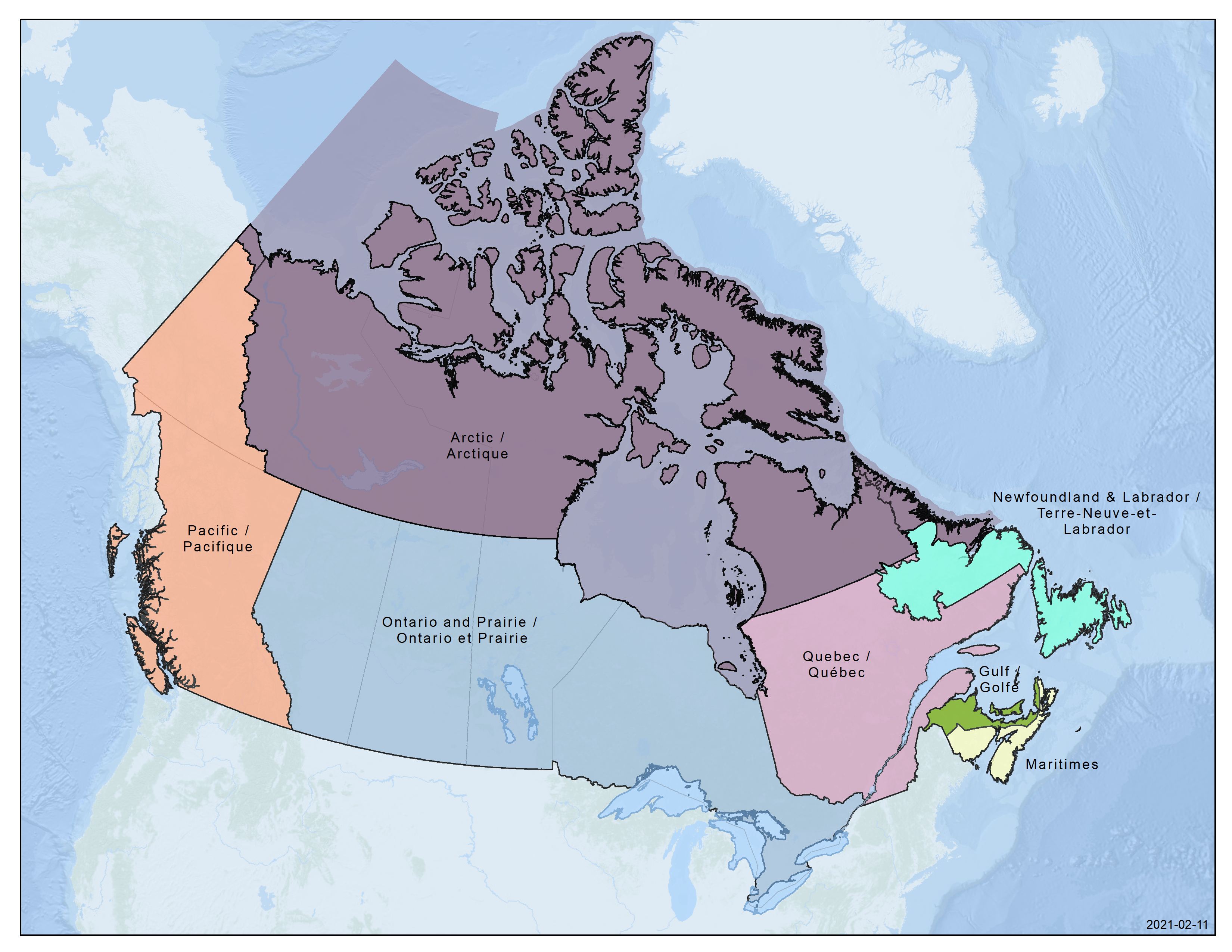Become a fishery officer
Fishery officers work to conserve and protect Canada's freshwater and marine fisheries resources and their habitat. From boating and aircraft patrols to observing fisheries and fish habitat, you'll need to be alert and ready for different challenges. Protecting Canada’s fisheries and safeguarding our oceans, freshwater and aquatic ecosystems is an honourable responsibility—one that offers the chance to make a lasting impact and contribute to the well-being of Canadians and future generations.
A big part of the job of fishery officers is to also teach people about the value of conserving and protecting our fisheries, waterways, and the species that live in them, and helping Canadians to feel like our partners in protecting the environment.

What a fishery officer does in a day
As a fishery officer, you’ll:
- promote fisheries compliance and conservation
- carry out surveillance of fishing activities by land, sea and air
- participate in planning, managing and controlling Canada’s fisheries
- act as a contact or representative of the federal government in remote communities
- collect evidence of illegal activity during routine patrols and special investigations to use in court
- have the opportunity to work closely with Indigenous communities and contribute to incorporate Indigenous knowledge into fisheries management.
Whether you’re working on the water, conducting air patrols, leading special investigations, or working along the wharves, we encourage you to build strong connections with the communities that you serve. This commitment to engagement is at the heart of a fishery officer’s values of duty, honour, integrity and service excellence, and plays a vital role in supporting reconciliation efforts.
Check out the full work description for fishery officers.
Job locations
There are over 100 DFO Conservation and Protection detachments across the country, in every province and territory. This wide distribution of locations means that there are opportunities for fishery officers to work from coast to coast to coast.
DFO regions map

Text version
The Arctic Region is inclusive of the Yukon North slope, Northwest Territories, Nunavut, Nunavik, Nunatsiavut, and Hudson and James Bay. This boundary is inclusive of Inuit Nunangat.
The Pacific Region consists of British-Columbia and Yukon, minus the Yukon slope.
The Ontario and Prairie Region consists of Ontario, Manitoba, Saskatchewan and Alberta.
The Quebec Region consists of Quebec, minus the Nunavik region in northern Quebec.
The Gulf Region extends from the New Brunswick-Quebec border to the northern tip of Cape Breton.
The Maritimes Region extends from the northern tip of Cape Breton to the New Brunswick-Maine border.
The Newfoundland and Labrador Region consists of Newfoundland and Labrador, minus the Nunatsiavut region in Labrador.
Job requirements
The working environment for fishery officers can be demanding.
Physically, you'll be exposed to all types of weather and terrain. You'll wear heavy protective equipment like soft body armour (weighing up to 12 kg) while:
- climbing ladders
- boarding vessels
- hiking over hazardous terrain
Land, air and sea patrols may last hours or days, and your job could be spent outdoors, in a vehicle or aircraft, on a vessel or snowmobile, or in the office.
The work will require:
- shift work
- disruptions to your routine schedule
- time away from family and community
You’ll need to be mentally and emotionally prepared to deal with confrontational and sensitive situations, including the potential for use of physical force. As a fishery officer, you’ll be trained to face these kinds of challenges and be ready to tackle any situation.
Full job expectations are available for fishery officers.
The right candidate for the job
If you’re applying to be a fishery officer, you must be:
- prepared to apply force to protect yourself, your colleagues or the public
- able to confront and de-escalate situations before the use of force is necessary
- willing to abide by a code of values and ethics that also applies to your life outside the hours of work
- law-abiding and willing to uphold the spirit and letter of the law in your dealings with others
- comfortable with working in remote regions of the country for extended periods of time in all weather and climate
- passionate about the environment and have a desire to protect our natural resources.
If you're a successful applicant, you'll attend a 19-week in-residence training program. This program includes:
- mandatory exposure to pepper spray
- learning to use a service pistol and shotgun
- physically demanding enforcement defensive tactics
- daily physical fitness exercises
- focus, hard work and perseverance
Check your suitability for the job.
Related links
- Fishery officer training and recruitment
- Medical standards for fishery officers
- Fisheries enforcement
- VIDEO: North Pacific Guard: Protecting our resources
- VIDEO: Operation North Pacific Guard – Launch from Victoria
- Date modified: